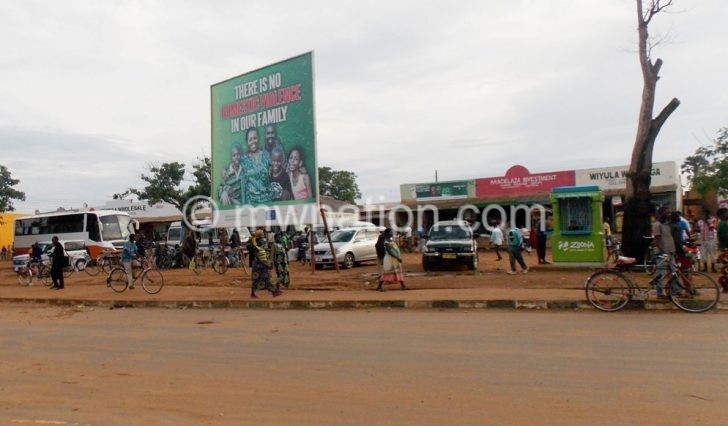Chitipa’s linguistic diversity
It is a warm sunset at Chitipa Boma. Men from different backgrounds gather around a pool table in a drinking joint to pass hours away.
This is an everyday scene at Chitipa Boma and their passion is expressed in a diversity of languages ranging from wakoma (you have killed it) to watimba (you hit it).

This evening, there are six men speaking different languages over this game-and they understand each other well.
The mix of tongues that escorts you every mile in Chitipa speaks of a rich interaction of diverse cultures and rare linguistic tolerance.
“It may confuse you when you are new here, but you get accustomed to it and start grasping some words in different languages,” says trader Harvey Silwimba.
Chitipa is rich in mother tongues. It has more than 13 languages and tribes under five traditional authorities (T/As)-Mwaulambiya, Mwenemisuku, Mwenekameme, Mwenewenya and Mwenekawonga.
Nothing makes the northern border district more unique than its linguistic diversity. But this diversity is no barrier at all.
Bicycle taxis, popularly known as Cargo here, is one of the business thriving in this environment. The names and expressions written on various bicycles often identify the owners with their tribes and languages. They also offer a journey in a forest of moral lessons.
One of them is labelled ukwiyisya kwiza, a Chilambya saying which urges you to be good to people on the way up the ladder because you will need them on the way down.
“When some people do well, they forget that nothing is permanent in this world. Be humble even when you are rich or poor,” says the bicycle owner Kefasi Kanyika, 21, from T/A Mwaulambiya. He is a Lambya by tribe and speaks Chilambya.
Moses Mkandawire from Kameme goes for tulibaga ingalumo, a Chinyika expression which evokes the biblical expression “the first shall be last and the last shall be first.” The cyclist is Nyika by tribe.
Other prominent languages include Chindali for Bandali people, Chinamwanga for Banamwanga, Chisukwa for the people of Misuku Hills and Chibandya for Babandya.
Also in the mix is Swahili from the neighbouring Tanzania. The borrowed language is widely used in business circles.
One cyclist has labelled his bicycle “yamungu mengi” (what comes from God is plenty).
While many identify themselves with their languages and tribes, some go for other languages.
Ndali tribesman Lyson Mutindiya speaks Chindali, Chitumbuka and Chichewa fluently. The 26-year-old cyclist from Mwenesenga Village in T/A Mwaulambiya settles for the English expression that reads “No money no love”. So does Greenwell Simkonda whose bicycle is labelled “God is full of gress”.
Not only do these languages flourish in bicycle taxi business. They are all over the place: in shops, cars, motorcycles and drinking joints.
Just when Chingoni, Chilhomwe, Chisena and other languages are disappearing, the people of Chitipa are preserving their linguistic pluralism.
But construction of a tarmac road commissioned four years ago has opened up the district to many people and their cultures.
The housing sector, agriculture and trade are growing.
Despite these tremendous changes, the languages are enduring.
Everywhere you go, there is a significant exchange of knowledge and ideas using prevailing mother tongues.
“Places with rich linguistic and cultural diversity have access to more varied knowledge, ideas than places with few languages and cultures,” argues Danish linguist Tove Skutnabb-Kangas.
In his study Why Should Linguistic Diversity Be Maintained and Supported in Europe?, Kangas explored how knowledge and ideas are transmitted through languages and visual images.
“In such an information society, those with access to diverse knowledge, information and ideas will do well in creativity. In commodity production, creativity precedes innovation and investment follows creativity,” she says.
There is a glaring lack of studies to establish the level of creativity and innovation created by the linguistic diversity in Chitipa.
But it is clear that the diverse languages are entrenched in various socio-economic activities.
The multiplicity of languages that flourish among the passionate followers of pool, a sport played on a table, makes one wonder what a great festival of languages accompanies the widely followed game of football.
This year, Chitipa United becomes the first team from the border district to play in the TNM Super League.





